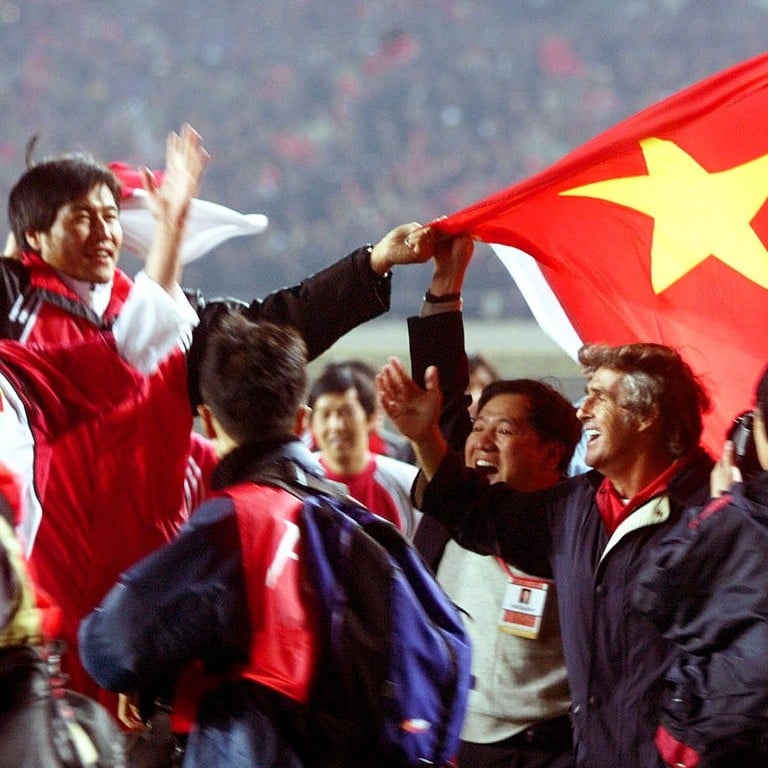
On this day: China qualified for its only Fifa World Cup
- Reaching the finals in Japan and South Korea remains a high point for Chinese men’s football, despite government-backed spending
- The 2002 players have not been kind about those that have followed them or Chinese Football Association policy since
On October 7, 2001, the Chinese men’s national football team made history. That was the night China took on bottom side Oman at Wulihe Stadium in Shenyang.
The hosts knew that a win would secure them a place at the 2002 Fifa World Cup in Japan and South Korea.
Oman were winless in their group, while China were unbeaten in five games, and it went to form despite the hosts missing their top scorer, Qi Hong, who was booked against UAE days beforehand.
A 36th-minute goal from midfielder Yu Genwei was enough for China to seal their place at their first World Cup Finals.
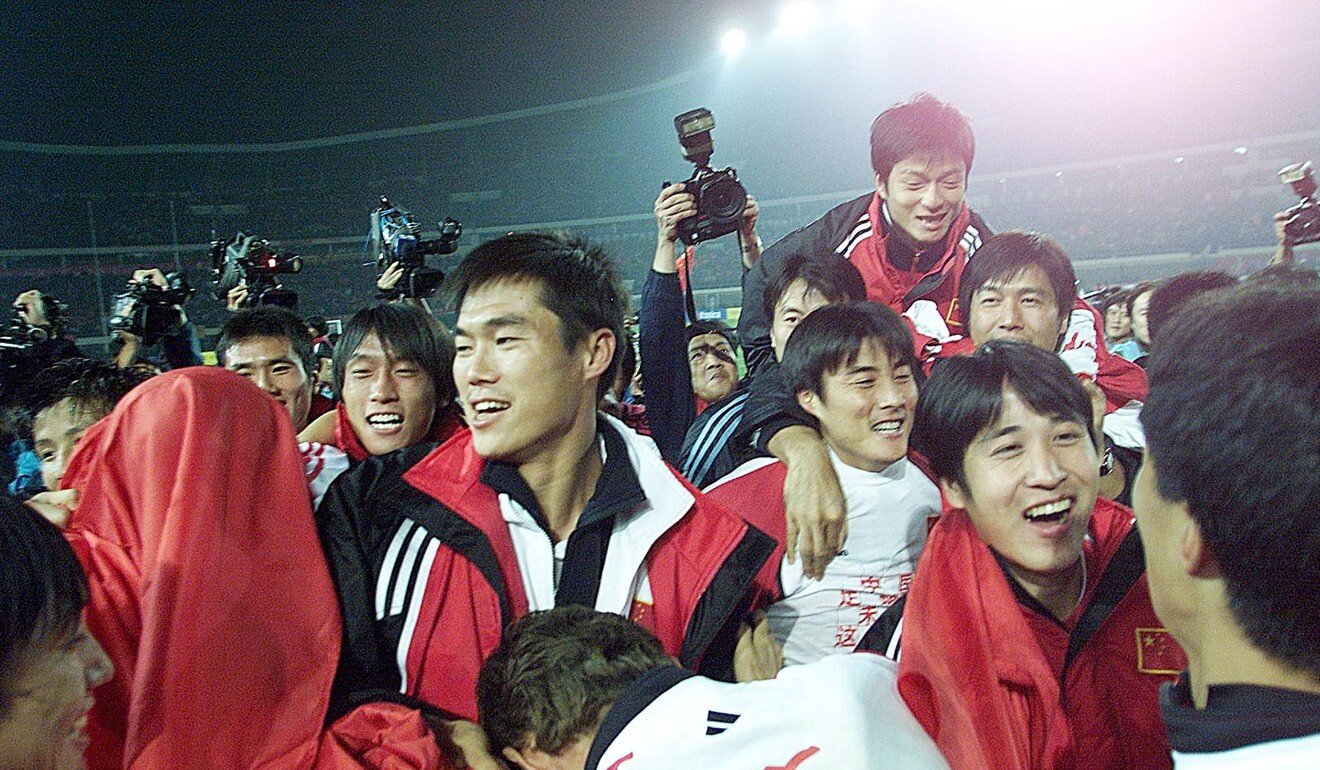
China coach Bora Milutinovic was not taking anything for granted, declaring the 1-0 win over the UAE in the previous game to be lucky.
“We were lucky to win,” he said after that game. “Now we have a very good chance of qualifying for the World Cup, but the fact is we haven’t yet qualified. We have to keep working hard until we achieve our goal.”
They did that days later in Shenyang, Liaoning province, in front of 50,000 fans. Milutinovic also became the first coach to take five different nations to the World Cup Finals – Mexico (1986), Costa Rica (1990), USA (1994) and Nigeria (1998).
Chinese football missing targets on its 2020 Action Plan
The achievement also kicked off a massive party in Shenyang and celebrations spread across the country.
“China is planning an all-night Olympic-size party to celebrate an expected soccer victory over Oman on Sunday that would enable it to qualify for the World Cup for the first time,” the South China Morning Post reported in the days before the game.
Beijing Youth Daily said: “In the event of a victory, China Central and Liaoning television stations, which plan to broadcast the match live, were planning an hour-long extravaganza in the stadium as grand as that which followed Beijing’s successful bid for the 2008 Olympics.”
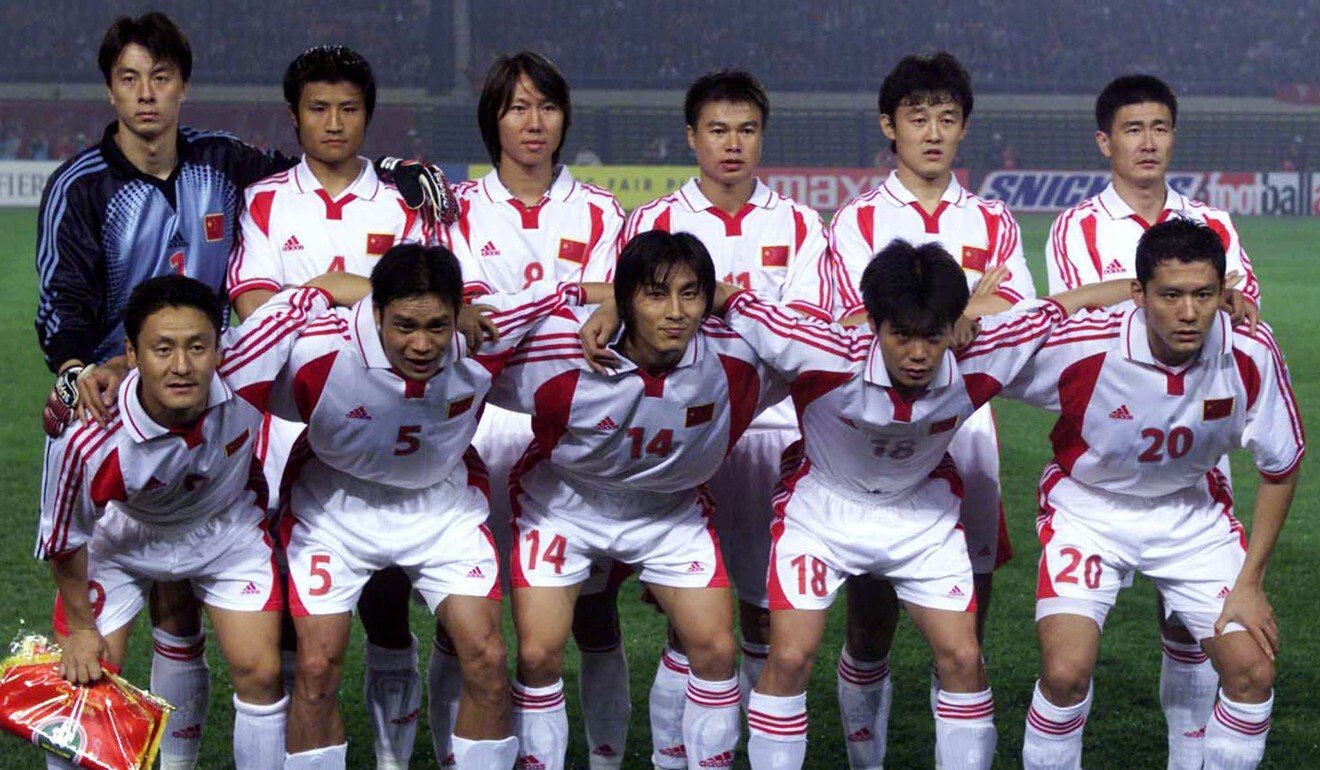
Confidence was high for their first appearance at the World Cup, with the Post’s end-of-year review saying: “China were drawn to play Brazil, Turkey and Costa Rica in the first round, which means the team have a reasonable chance of qualifying for the tournament‘s second stage.”
Xi’s World Cup wish, tattoos and Tevez: the 2010s in Chinese football
It did not end quite that way – China were beaten in all three games and failed to score a goal.
“Our capability was at that level, it was no one’s fault,” China’s top scorer Hao Haidong said in 2014. “But it was no accident either that we made it to the World Cup Finals,” he said.
Defender Li Weifeng explained it in terms of a lack of exposure.
“It was related to our narrow vision back then. We didn’t have much access to the various soccer styles used around the world,” Li said.
“But we really need to thank Bora Milutinovic, the only one of us who had previous World Cup experience. He led [the team] in surpassing many barriers, but it was not enough.”
History of failure hurts China's veteran footballers
Jin Zhiyang, a member of the 2002 coaching staff, saw the whole experience as a positive. “It was the first time we had a taste of it. So everything [we experienced] was an accomplishment, including the defeats. Even though we failed to earn a single point, or a goal, that first-hand experience will be remembered forever.”
As it stands, that was a high point for Chinese football and criticism has come in their subsequent failings. Hao did not hold back in his 2014 interview with RTHK as China prepared to watch on once more.
“I don’t see any lessons we’ve drawn from our experience at the 2002 World Cup,” he said.
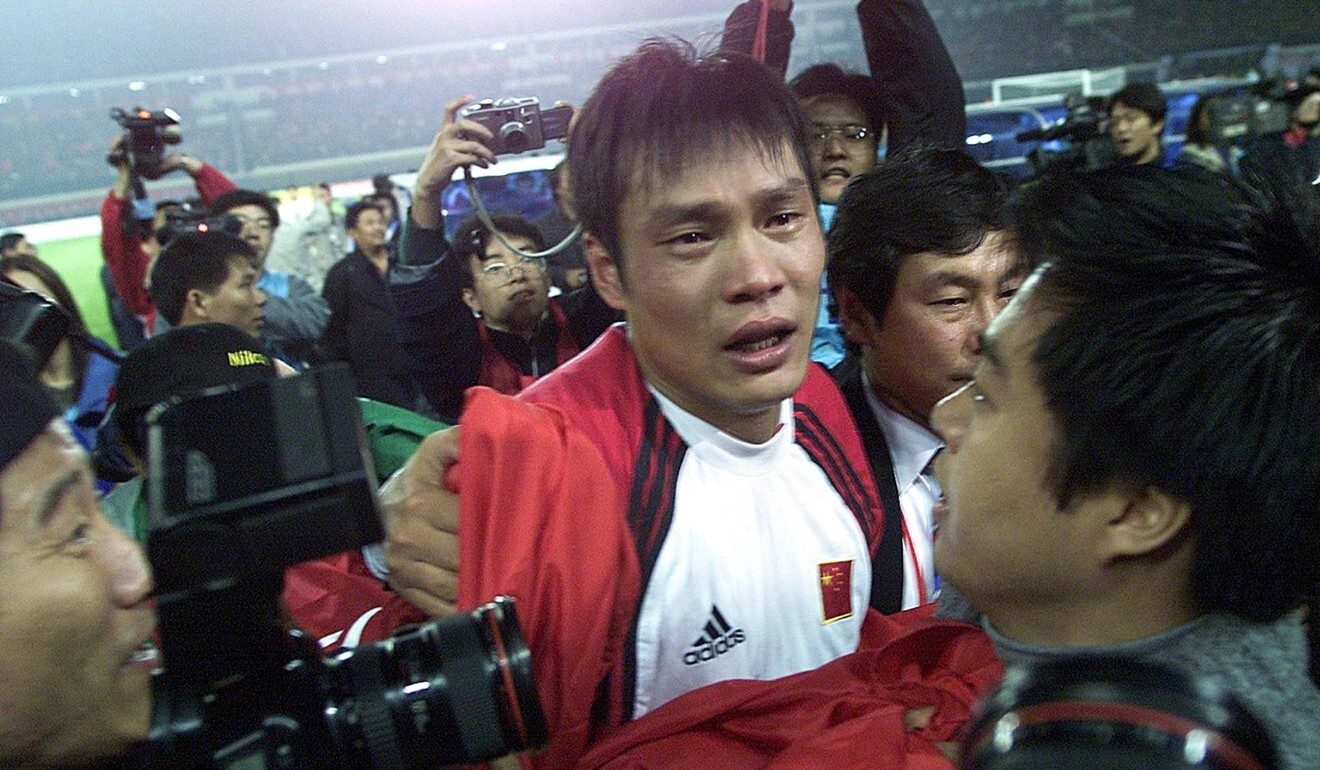
“Today we change our coach, tomorrow officials, the day after that our playing style, and after that, the players … I don’t see any planning. It couldn’t possibly get more absurd.”
Li also wondered where it all went wrong. “Just look at the national team that made it to the 2002 World Cup, and the team today – they aren‘t nearly in the same league,” he said. “I often wonder, what has happened in the past 12 years?”
Arguably little has changed since, with China also watching on for the 2018 World Cup in Russia and not guaranteed of breaking their run in Qatar in 2022.
How China can learn from Australia’s ‘golden generation’
They are giving themselves the best chance though, with the new policy of naturalisation giving hope that they can reach the finals.
If that does not work then there is hope in Fifa expanding the tournament or China hosting the World Cup Finals in the 2030s.
Qualifying for and hosting a World Cup were among Xi Jinping’s “Three Wishes” for football back when he was president-in-waiting in 2011.
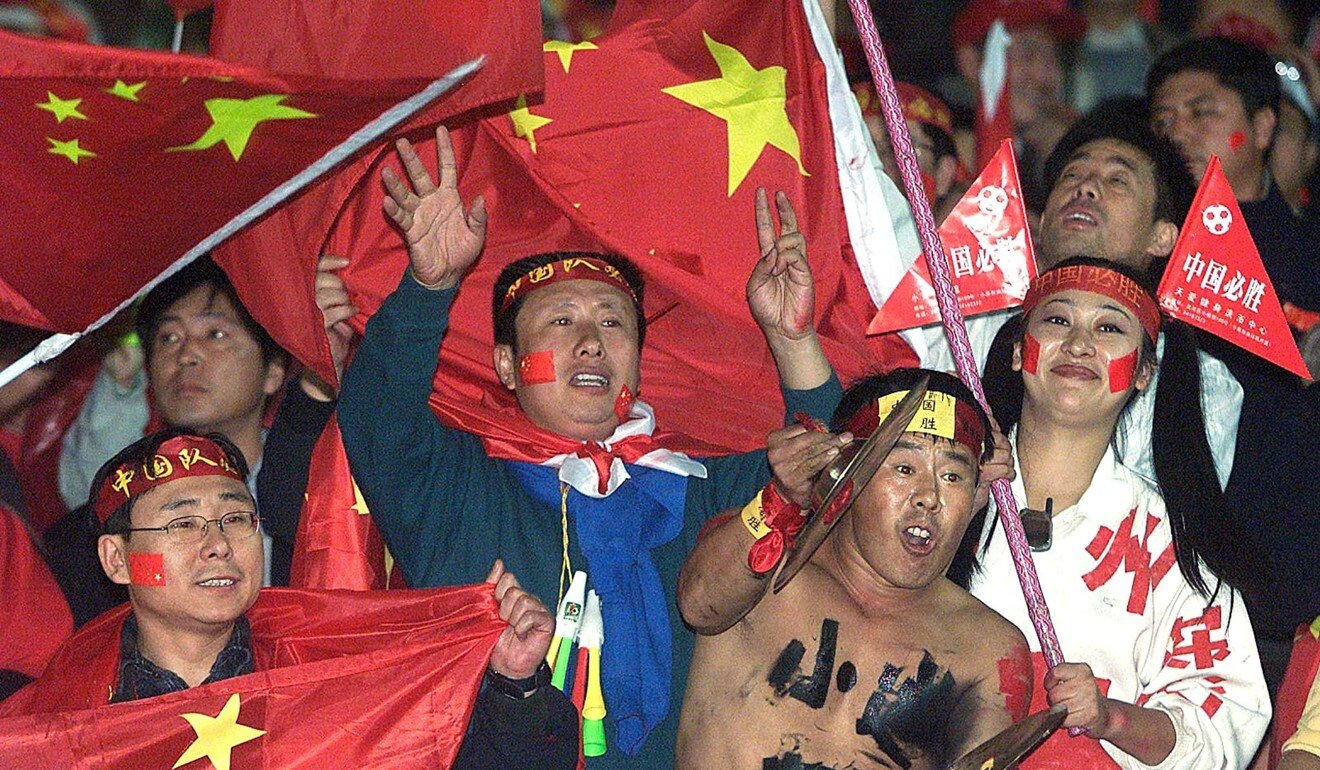
Xi has driven policy and investment in Chinese football that has little to show for it, with targets missed on the 2020 action plan.
It has been failure as usual for the national team but as Bo and Hao show, things change.

